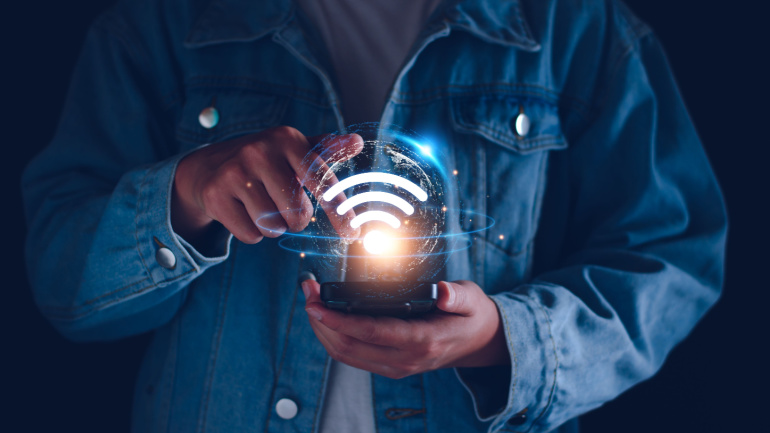Tillman FiberCo, LLC, a leading provider of fiber optic broadband infrastructure, has announced a significant expansion of its 100% Fiber-to-the-Premise (FTTP) network in Florida. The expansion aims to cater to the growing demand for high-speed internet access in various regions across the state, including Tampa Bay, Panhandle, South and Southwest Florida, and several major cities like St. Petersburg, Fort Myers, Naples, Pensacola, Miami, Palm Beach, Ft. Lauderdale, and Kissimmee.
Internet connectivity in West Africa is in a fragile state due to substantial damage to critical undersea cables resulting in limited or non-existent service in regions including Ivory Coast, Liberia, and Benin. The impact is reportedly extreme, with ripple effects reaching as far as South Africa. Telecom giants MTN and Vodafone linked the disruptions to these cable issues.
EPB, the city-owned broadband provider, has launched a new 2.5-gig residential internet service, expanding its symmetrical speed offerings on the fiber optic network. Priced at $97.99 per month, the 2.5-gig service comes with the installation of EPB’s Wi-Fi 6e router and is available across the service area. VP Katie Espeseth emphasized EPB’s commitment to diversifying network options, with an eye on providing service up to 25-gig.
A recent report by the Fiber Broadband Association (FBA) reveals that fiber internet has now reached over half of U.S. households, surpassing 51.5% of primary homes. The survey, conducted by RVA LLC Market Research and Consulting on behalf of FBA, highlights 2023 as a record-setting year for annual fiber-to-the-home growth, with network operators connecting an unprecedented nine million new homes.
Climate change casts a menacing shadow over the infrastructure underpinning the Internet, including fiber optic cables and colocation facilities. The predicament Saint-Martin island faced after Hurricane Irma’s assault prompted Setics Sttar to reimagine their rebuilding strategy. Subterranean framework emerged as a key defense against future environmental disasters, demonstrating the necessity to fuse climate risk considerations with infrastructure planning. Seeking a climate risk assessment for your FTTH Network design has become not only optimal but essential in the face of a changing world.
The GSMA’s recent State of Mobile Internet Connectivity Report reveals intriguing trends in global smartphone use. While a majority, about 57%, of the global populace now connects to the mobile internet, there’s a stark division in technology adoption. Most users in developed markets rely on 4G or even 5G-enabled devices, while developing regions substantially depend on older 3G and even 2G tech. Surprisingly, the pace of mobile internet user growth also appears to be decelerating. So, how can the world’s telecom industry respond to the challenges of this digital divide? An engrossing discussion waiting to happen at the upcoming Total Telecom Congress!
As internet giant Hurricane Electric curbs access to the notorious web forum Kiwi Farms, it raises pivotal discussions around online free speech. However, the Electronic Frontier Foundation forewarns of a hazardous trajectory, as hysteria around controversial platforms could pave the way to excessive intervention from mighty internet infrastructure providers. Meanwhile, the role of such companies in managing online content remains a hot topic.
The UK’s Advertising Standards Authority recently adjudicated a dispute over the supposed misleading adverts of ISP, 6G Internet. The ASA ruled that the company name erroneously suggested the availability of non-existent 6G services. The decision underlines a recurrent issue of consumer confusion over service offerings in the telecommunications sector. Despite the controversy, 6G Internet has not indicated plans to adjust their brand name, possibly sparking inevitable customer confusion as the prospect of true 6G technology looms nearer.
Formulating the future of UK’s internet, Building Digital UK (BDUK) triggers the procurement process under the £5 billion Project Gigabit framework. Their ambitious objective: accelerate gigabit-speed broadband coverage to capture a minimum of 85% of premises by 2025. However, there’s a twist in the tale, as reaching remote regions still poses a formidable challenge.
DE-CIX, the world’s leading operator of Internet Exchanges (IXs), has unveiled its plans to establish PT DE-CIX Indonesia, a joint venture with PT IDMarco Digital Solusi, a subsidiary of the Salim Group. This initiative marks a significant move for DE-CIX, as it ventures into Indonesia, the largest population and fastest-growing economy in Southeast Asia.













